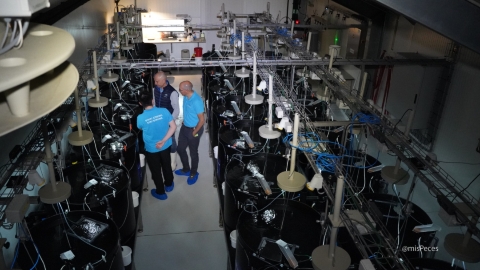
The Spanish Agency for Medicines and Healthcare Products, specifically its Committee on Veterinary Availability (CODI-VET), has released a report outlining critical gaps in veterinary treatments and other pressing needs, including those relevant to aquaculture.
The aim is to identify and prioritise these gaps to enhance animal health, prevent disease, and ensure the sector’s sustainability.
The report, targeted primarly at professionals within the aquaculture industry, delves into these therapeutic gaps, highlighting the most urgent needs for new medicines and treatments. These include recommendations for antiparasitics, antimicrobials, vaccines, anaesthetics, and the use of probiotics.
While the focus is on Spain, the findings are also highly relevant for other Mediterranean countries, where many of the same diseases and challenges affect shared species and ecosystems.
The report stresses the urgent need for internal and external antiparasitics to tackle pathogens such as Uronema, Cryptosporidium, and monogeneans. It also calls for vaccines against specific agents like Aeromonas salmonicida and nodavirus in gilthead seabream. Moreover, it underlines the importance of broadening the range of antimicrobials and anesthetics, alongside promoting probiotics and postbiotics for disease prevention.
Key industry demands include medicated premixes and solutions for immersion or bath treatments, which streamline administration and improve treatment effectiveness in commercial operations.
The report warns that the current lack of these therapeutic tools hampers producer’s ability to manage diseases effectively, posing a threat to the long-term sustainability of Spain’s aquaculture sector.
In response, the Agency urges the pharmaceutical industry to collaborate closely with the aquaculture sector to address these critical gaps.


